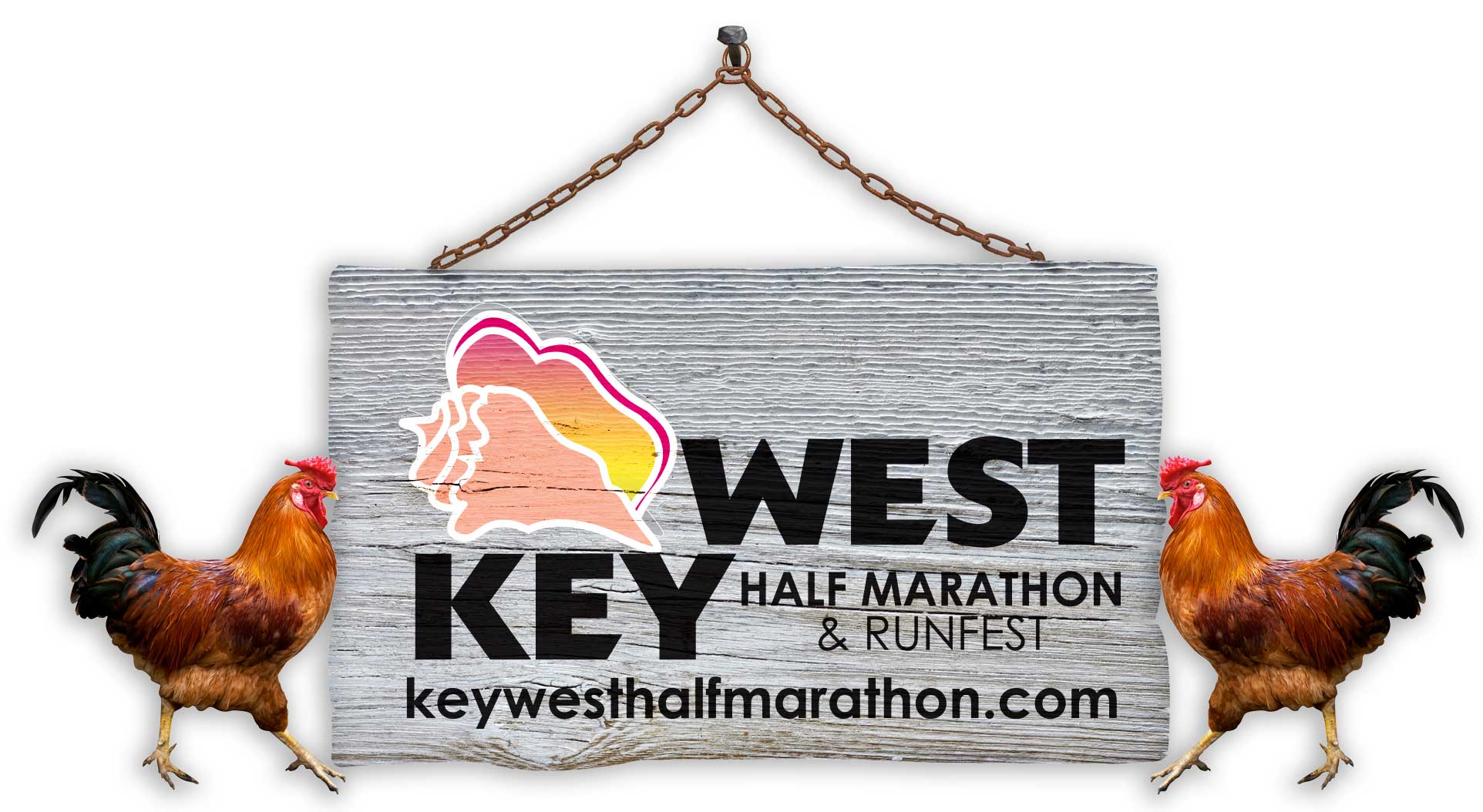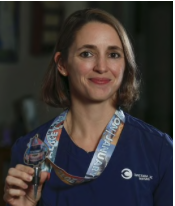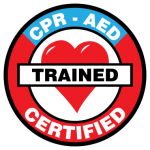Delaware nurse saves life in Florida
delawareonline
The News Journal
By Esteban Parra
Delaware nurse Amy Smythe could not stop thinking about the man she saw collapse in Key West, Florida.
She’d finished the Key West Half Marathon moments before when she noticed a man on the ground near the finish line.
The 39-year-old’s instincts kicked in, and even though she had just run 13 miles, she bolted toward the man whose skin color was already gray.
Smythe, a nurse in Christiana Hospital’s cardiovascular unit, performed CPR until an ambulance took him away. That was on Jan. 15, and the Elkton, Maryland, resident figured she’d never find out what happened to the man.
Then, a friend called her and told her to check out Facebook.
“Hi this is Bill Amirault,” the man said in a video posted on the half-marathon’s Facebook page. “I’m hoping you can help me find the person, or people, who saved my life this past weekend.”
In the video, 44-year-old Amirault explained that he’d suffered ventricular fibrillation, which occurs when the heart beats with rapid, erratic electrical impulses, according to the Mayo Clinic. This causes pumping chambers in the heart to quiver uselessly, instead of pumping blood, and can result in death. He said that if it wasn’t for the CPR he received shortly after collapsing, he could have suffered brain damage or died.
“Immediately, I started crying because he looked fantastic,” Smythe said. “I was so amazed he made it with no after-effects.”
The two connected, first on Facebook, then over the phone. And there’s hope that maybe next year both can meet face to face, along with two other people who also provided aid.
“I would love to get to meet them,” Amirault said, adding the next time they could realistically see each other would be at next year’s 20th annual Key West Half Marathon. “I told them I’d be there, so we’ll see how that shakes out.”
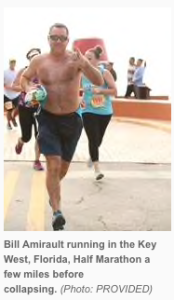 Moved by the story, race organizers said they will encourage CPR training in Amirault’s name to all participants and in ad campaigns for the half-marathon taking place Jan. 14.
Moved by the story, race organizers said they will encourage CPR training in Amirault’s name to all participants and in ad campaigns for the half-marathon taking place Jan. 14.
“We actually had a medical team 50 feet away, but Bill was so, so fortunate to have Amy, a nurse, and the other helpers right there at the exact time,” said Barb Wright, the race director. “I am going to reach out to Amy and invite her back with a comp entry.”
Both Amirault and Smythe are encouraging others to take CPR training.
“Just having that basic knowledge of performing chest compressions, keeping blood flowing to the brain, is a huge value in those critical first minutes,” Amirault said, adding he plans to learn CPR when he returns to his home in Colorado Springs, Colorado.
Learning CPR is easy, Smythe add.
A matter of ‘fate’
Smythe had finished the half-marathon, beating her old time by 20 minutes.
“I was excited about that,” she said, saying she had wanted to finish in less than two hours – which she did.
As she waited for her friends to cross the finish line, she noticed a man slowing down and walking toward the curb.
“Oh man, don’t stop now. You’re almost there,'” she remembers thinking.
She then turned to her husband to see about moving closer to the runners. When they moved up, Smythe said she saw the man flat on his back. She ran up to the man and rubbed his chest to see if he was awake. She knew he wasn’t down because he was fatigued.
“He’d already started to look gray,” she said.
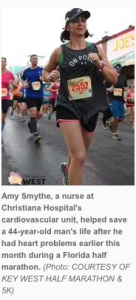 As Smythe searched for a pulse, two more people joined in and began CPR on the man. The three took turns doing chest compressions and yelling for help.
As Smythe searched for a pulse, two more people joined in and began CPR on the man. The three took turns doing chest compressions and yelling for help.
When EMS arrived with a defibrillator, Smythe said she backed off. She saw them working on the man before putting him in an ambulance and taking him away.
“I kind of held on to hope that he may have been OK, but the last time that I had seen him, he didn’t look like he was going to make it,” she said.
Later that night, Smythe said she checked the local news, but saw nothing. She checked the newspaper the following morning with the same result.
After arriving at her Elkton, Maryland, home on Jan. 17, Smythe said she figured it was better to not know what happened.
“If he didn’t make it, then I would have felt horrible,” she said. “Sometimes not knowing is better than knowing.”
But she kept wondering if she did everything she could.
As Smythe ate dinner three days later, she got a text and call from a friend.
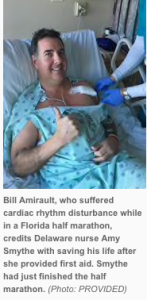 Amirault, who is not a big Facebook user, said he just wanted to know who these people who saved him were.
Amirault, who is not a big Facebook user, said he just wanted to know who these people who saved him were.
“They’re kind of unsung heroes,” he said about the people. “They saved my life and didn’t want anything in return. They didn’t even want to be recognized.
“I just felt compelled to reach out and say, ‘Thank you.'”
It took about 24 hours to learn the names of the three individuals, Smythe, Lisa Otis Vos of Illinois and Robbie Ladd of Florida.
Smythe was the first of the three to connect with Amirault. The two spoke for the first time over the phone on Jan. 23.
“It’s like talking to a friend you haven’t heard from in a while,” Smythe said. “Even though I’d never talked to him before, I was just so happy that he was alive and able to talk with me.”
Contact Esteban Parra at (302) 324-2299, eparra@delawareonline.com or Twitter @eparra3.
